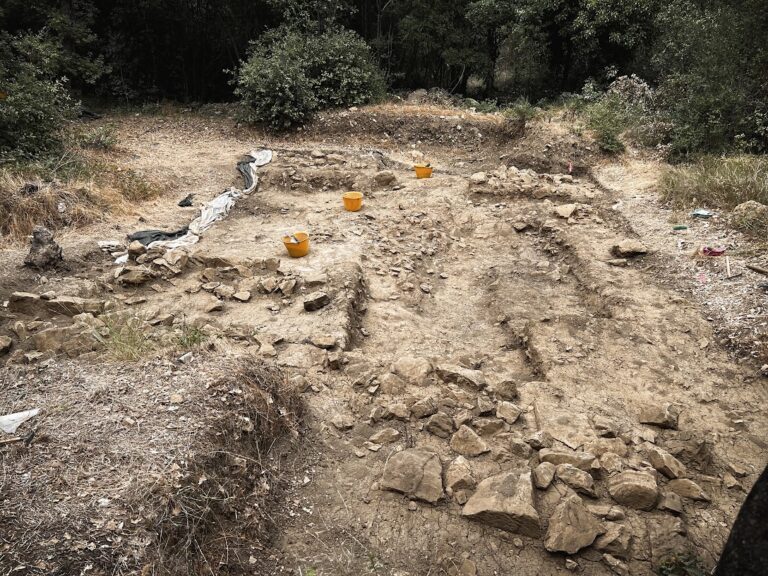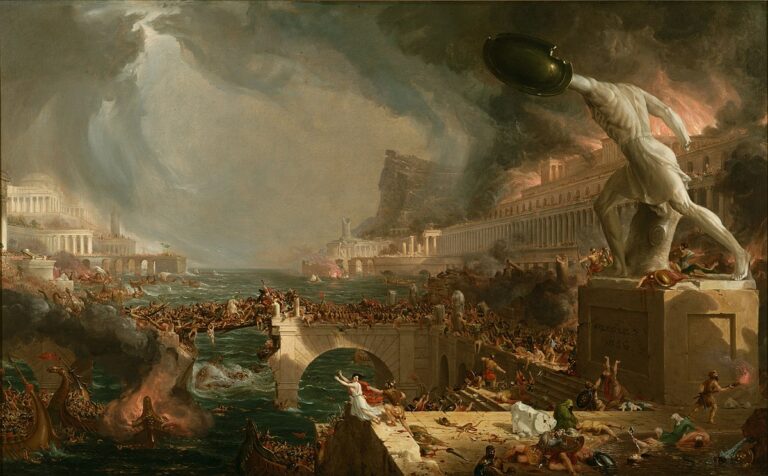The Greatest Warrior Who Ever Lived: Khalid ibn al-Walid
The sword of allah
Khalid ibn al-Walid, known as the “Sword of Allah,” is a figure enshrined in history for his exceptional military prowess and strategic acumen. His life, a tapestry of bold tactics and unwavering faith, left an indelible mark on the early Islamic conquests, shaping the course of Islamic and world history.
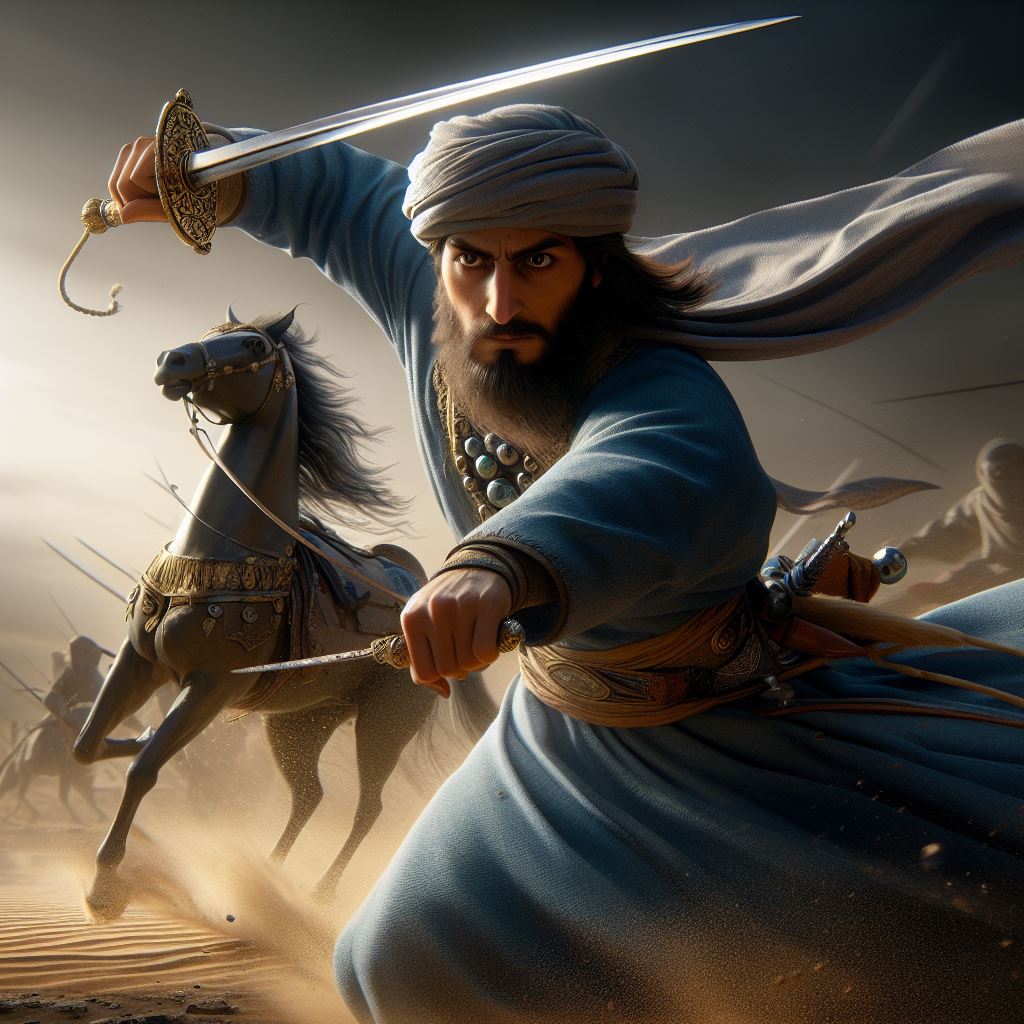
Born into the influential Banu Makhzum clan of the Quraysh tribe in Mecca around 585 AD, Khalid was a member of a family known for its military leadership. His initial opposition to Islam, including participation in battles against Muslims, such as the Battle of Uhud in 625 AD, highlights his early prowess as a warrior. However, his conversion to Islam in 629 AD, following a revelation of the faith’s true message, marked a significant turning point in his life and in Islamic history.
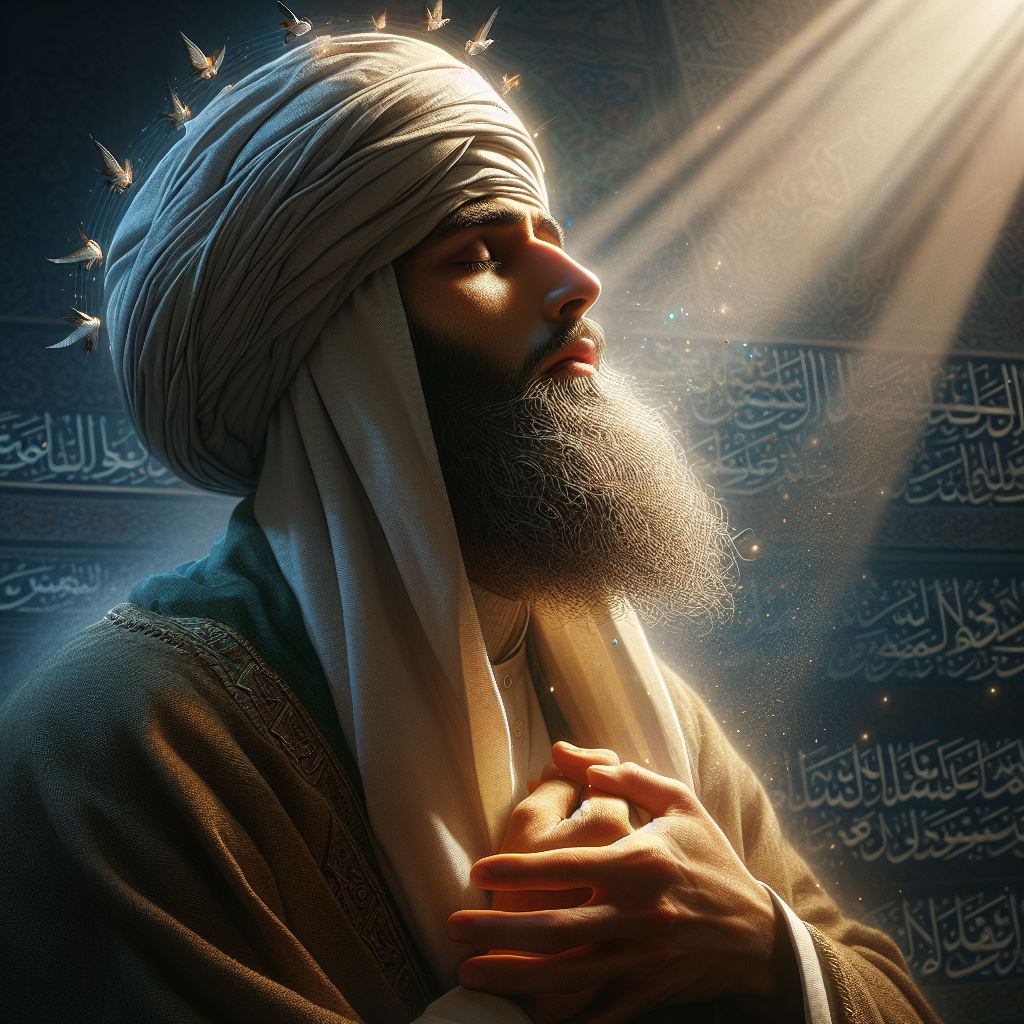
Khalid’s military career under the banner of Islam is marked by a series of brilliant campaigns, characterized by his innovative tactics and swift, decisive actions. He played a crucial role in key battles that shaped the early Islamic state.
- Battle of Mu’tah (629 AD): Khalid assumed command during a dire situation, managing a strategic withdrawal and saving the Muslim army from annihilation.
- Conquest of Mecca (630 AD): His tactical acumen was instrumental in the bloodless conquest of Mecca, where he led one of the main columns into the city.
- Battle of Yarmouk (636 AD): Perhaps his most famous battle, here Khalid led the Muslim forces against the Byzantine Empire. His brilliant tactics and resilience turned the tide in favor of the Muslims. Which led to a decisive victory that opened the gates of Syria to Islamic rule.
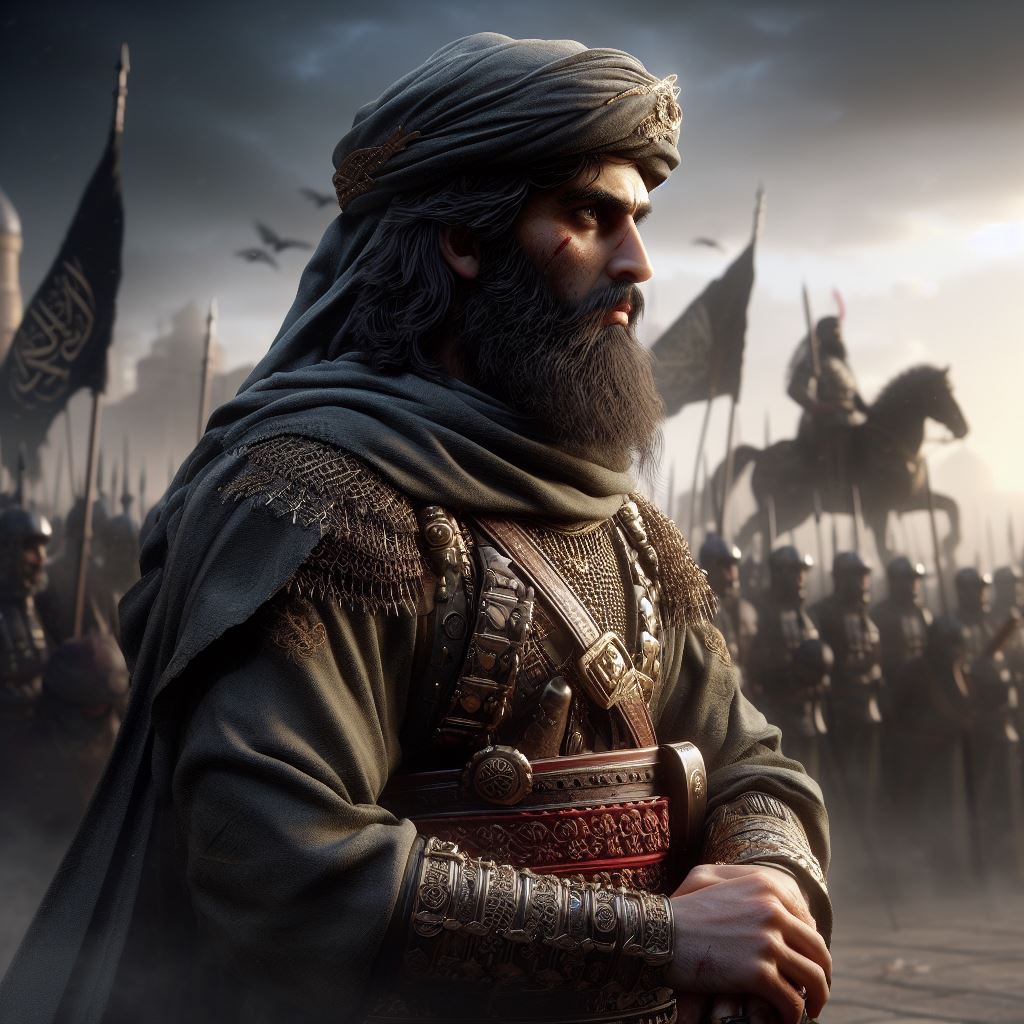
On his return to Medina after the battle of Mu’tah, knowing how he had saved hundreds from slaughter, The Prophet made Khalid Ibn al-Walid a high-ranked commander of the Muslim army, and given the title of Saif Ullah (Sword of Allah).
Khalid’s leadership style was marked by boldness, strategic foresight, and an ability to inspire his troops. He was known for his rapid marches, surprise attacks, and ability to read and adapt to the battlefield’s changing dynamics. His use of cavalry, in particular, set new standards in mobile warfare.
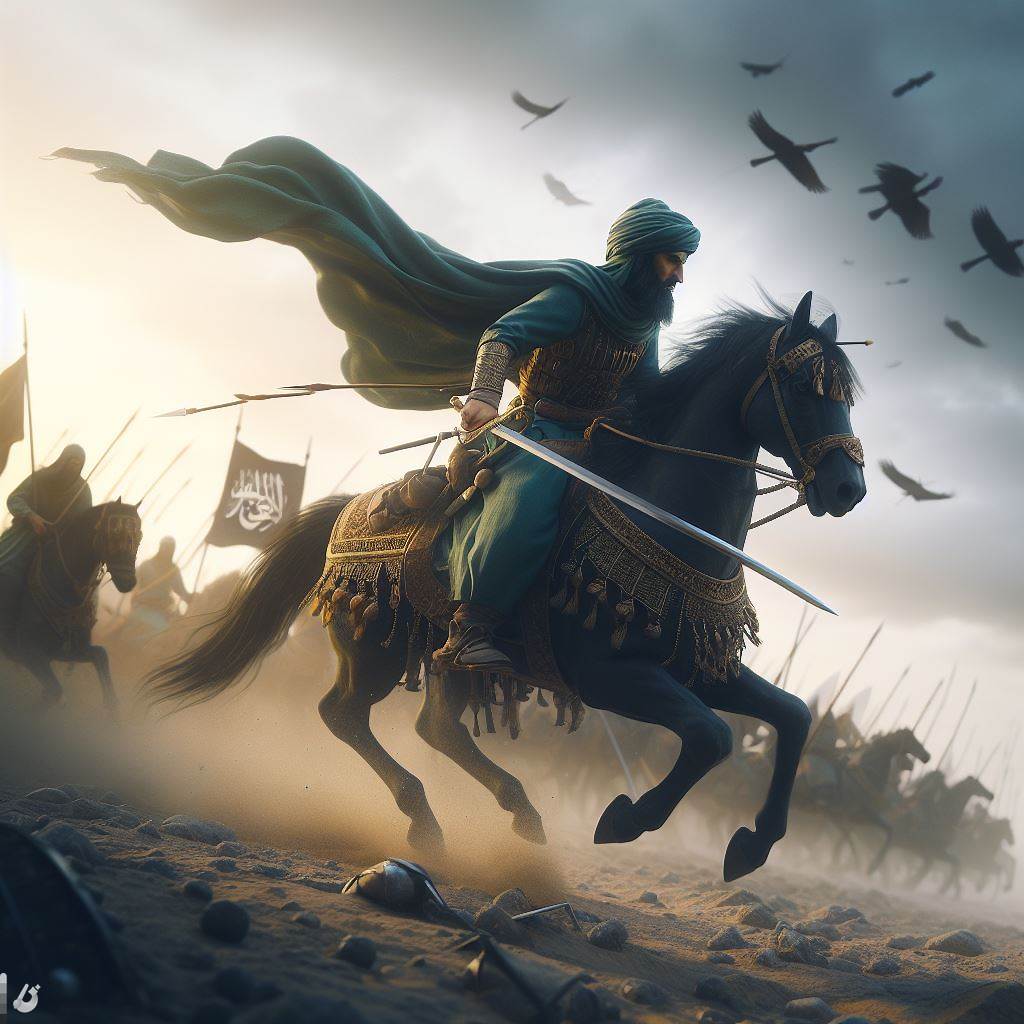
Khalid ibn al-Walid’s military career ended when he was dismissed from command by the Caliph Umar ibn al-Khattab, who feared that people would attribute the victories to Khalid rather than divine will. He died in 642 AD in Homs, Syria, not in battle but from illness, famously remarking that though he had fought in countless battles, there was not a single scar on his body that he received in battle.
Khalid’s legacy is a testament to his military genius and his role in the rapid expansion of the Islamic State. His strategies and tactics have been studied around the world, and he remains a revered figure in Islamic history.
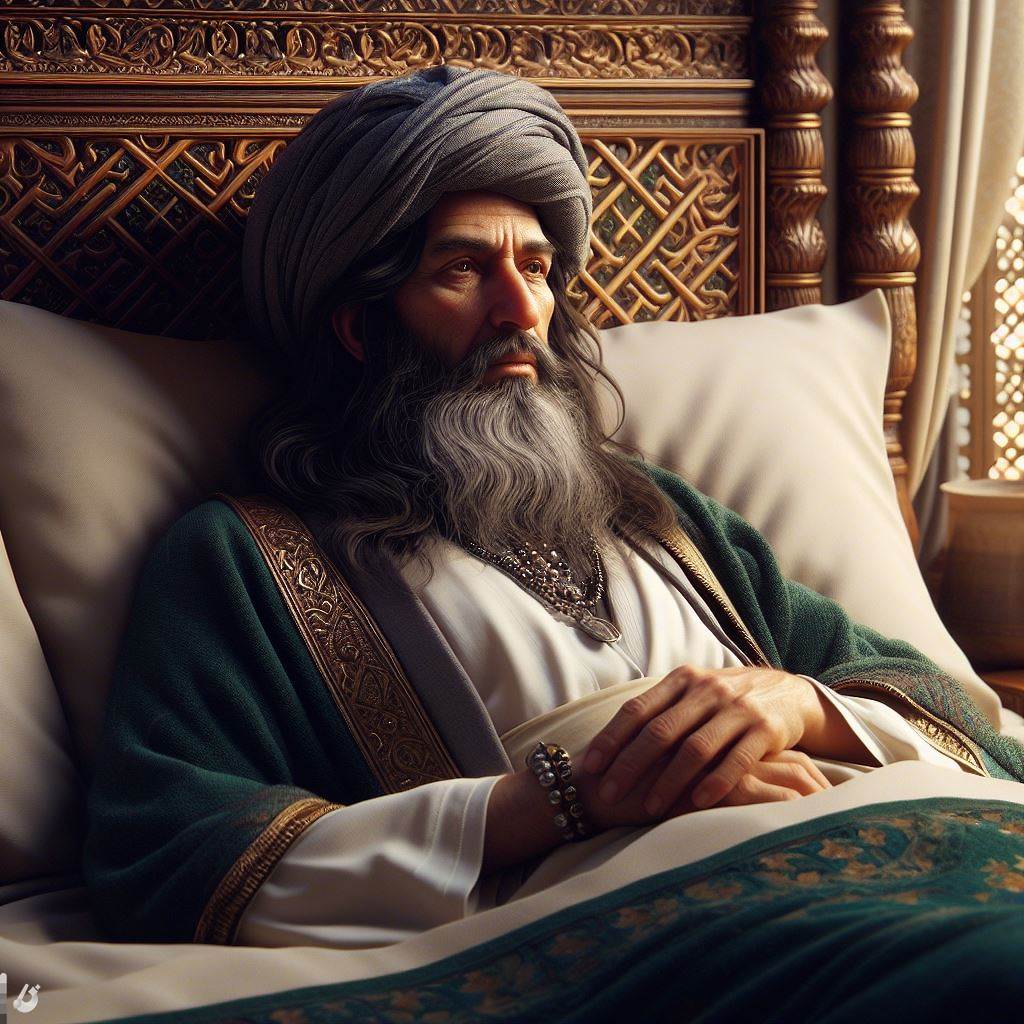
“I would throw myself in the ranks of the enemies until I would be certain that I would not come out alive. And here I am, dying in my bed, like cattle die.” ~ Khalid Ibn Al-Walid
Khalid ibn al-Walid’s life story, from his initial opposition to Islam to becoming one of its greatest generals, is a narrative of transformation, faith, and military brilliance. His contributions to the Islamic conquests of the 7th century illustrate the profound impact a single individual can have on the course of history. His legacy as a tactician, a warrior, and a leader endures, making him one of the greatest warriors in history.
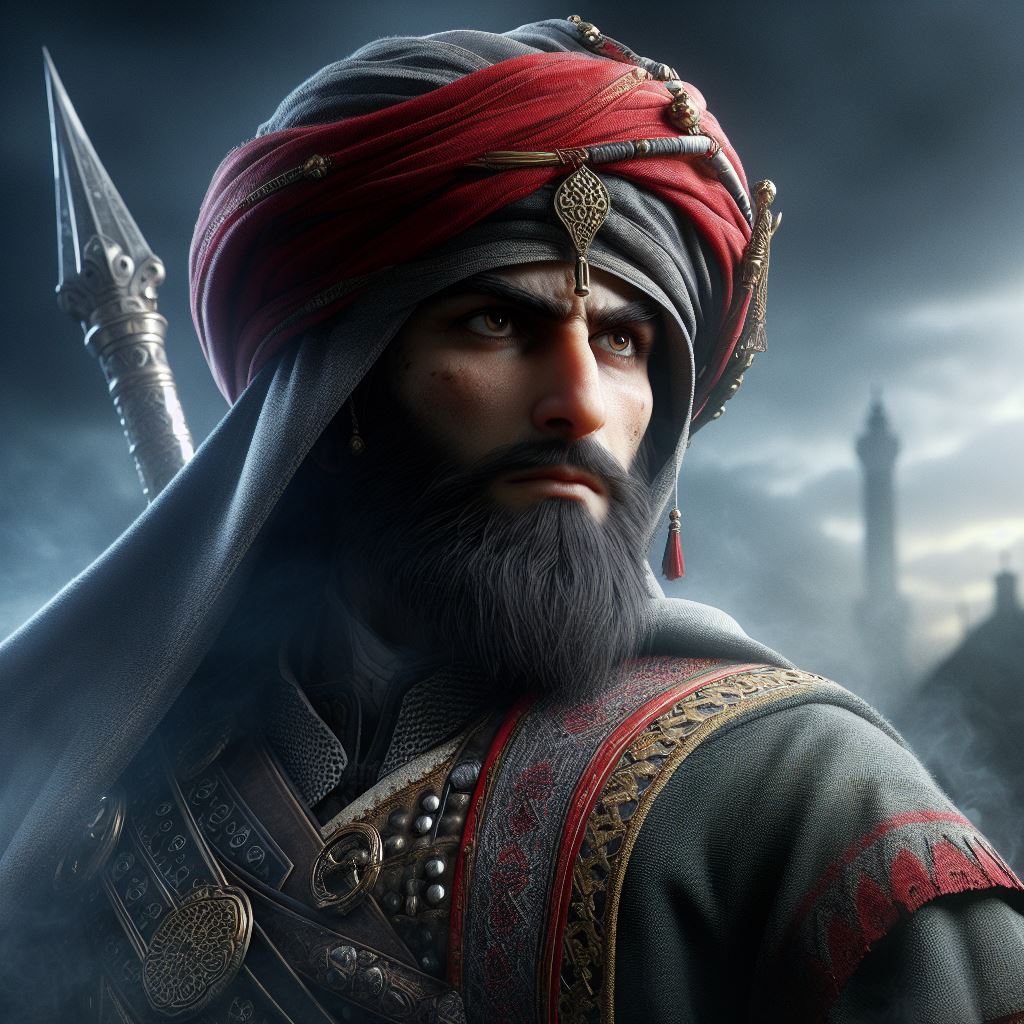
Fun Fact: Despite his numerous battles and campaigns, where he earned the reputation as an undefeated commander, he is said to have remarked upon his deathbed that there were no marks of a sword on his body. This irony is striking, given his involvement in countless combats. He lamented that, despite his desire to die as a martyr in battle, he was dying in his bed. This statement highlights the paradox of a legendary warrior who survived so many battles unscathed, only to die a natural death.
If this article piqued your interest, don’t miss out on our other fascinating pieces by clicking the button below.


